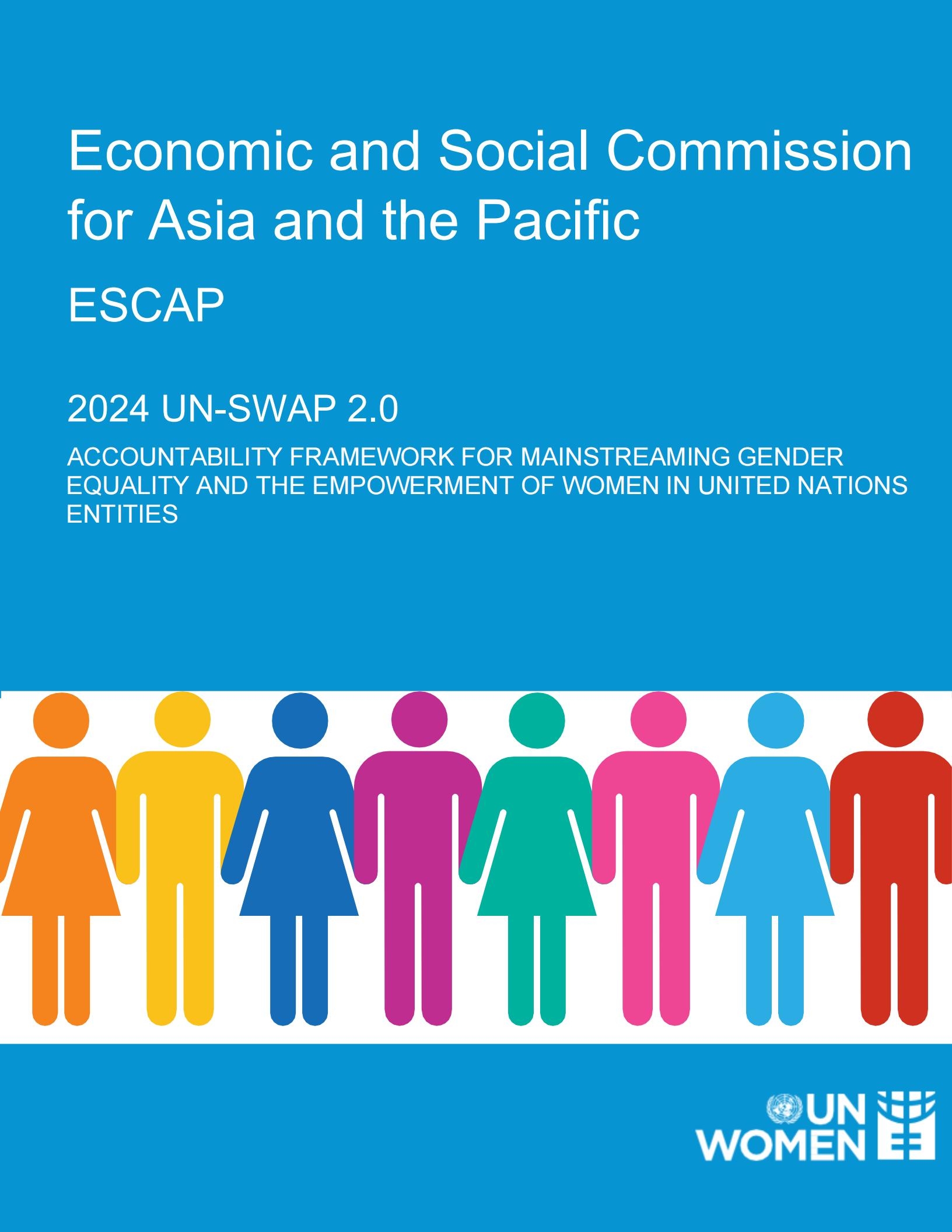
The United Nations System-Wide Action Plan (UN-SWAP) is the UN system’s principal accountability framework for gender mainstreaming. It provides a comprehensive set of performance indicators across key functional areas—including leadership, results-based management, human and financial resources, institutional capacity, and organizational culture—to assess and guide progress in achieving gender equality and the gender-related Sustainable Development Goals (SDGs).
This report outlines ESCAP’s progress against the 17 UN-SWAP performance indicators for 2024. ESCAP continues to be a top-performing entity, with the 2024 assessment showing that the organization is now meeting or exceeding 94% of all requirements—outperforming the UN Secretariat and the broader UN System. This achievement reflects ESCAP’s sustained commitment to institutionalizing gender equality across its operations, programming, and internal processes.

